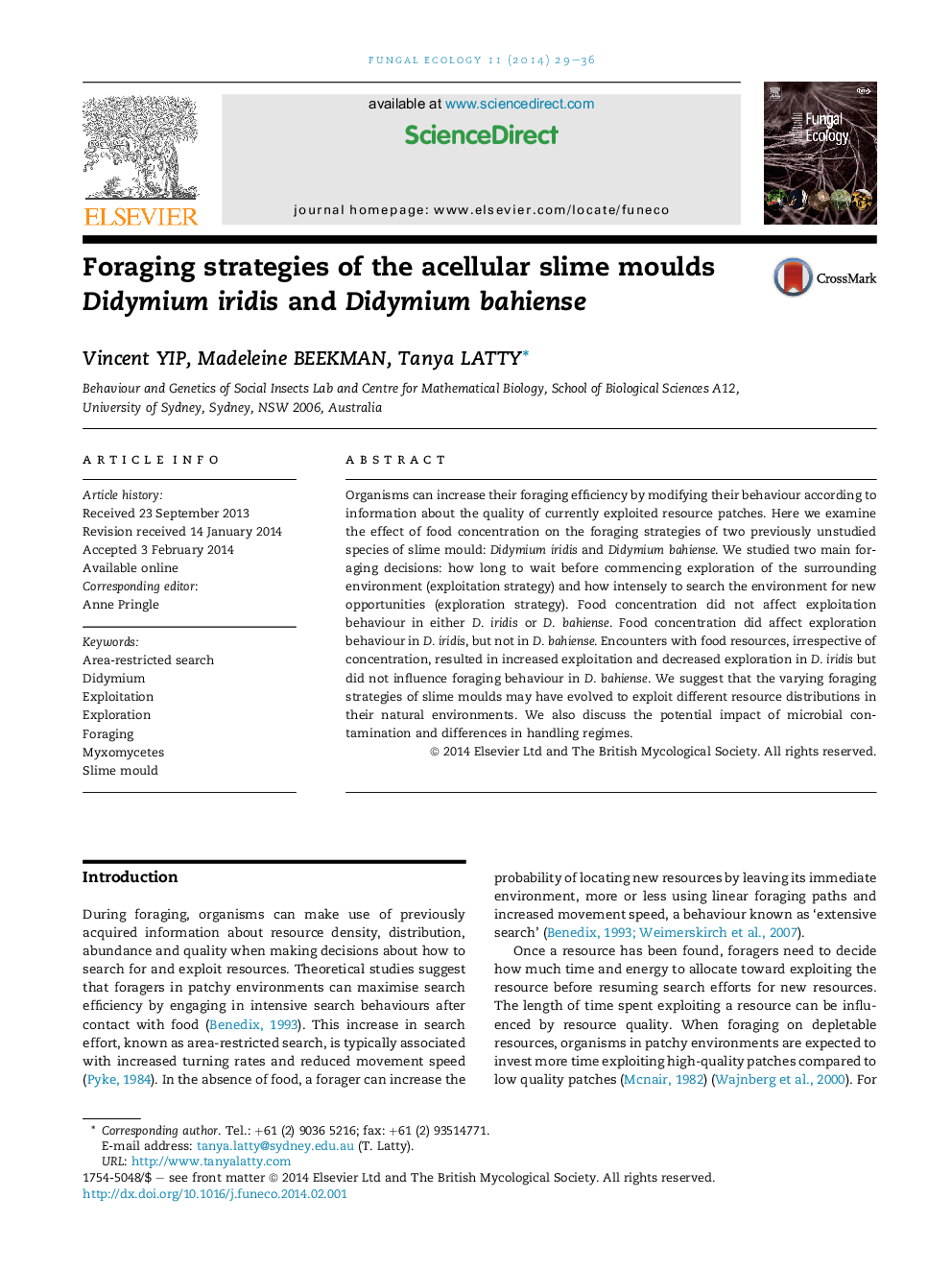| Article ID | Journal | Published Year | Pages | File Type |
|---|---|---|---|---|
| 8384621 | Fungal Ecology | 2014 | 8 Pages |
Abstract
Organisms can increase their foraging efficiency by modifying their behaviour according to information about the quality of currently exploited resource patches. Here we examine the effect of food concentration on the foraging strategies of two previously unstudied species of slime mould: Didymium iridis and Didymium bahiense. We studied two main foraging decisions: how long to wait before commencing exploration of the surrounding environment (exploitation strategy) and how intensely to search the environment for new opportunities (exploration strategy). Food concentration did not affect exploitation behaviour in either D. iridis or D. bahiense. Food concentration did affect exploration behaviour in D. iridis, but not in D. bahiense. Encounters with food resources, irrespective of concentration, resulted in increased exploitation and decreased exploration in D. iridis but did not influence foraging behaviour in D. bahiense. We suggest that the varying foraging strategies of slime moulds may have evolved to exploit different resource distributions in their natural environments. We also discuss the potential impact of microbial contamination and differences in handling regimes.
Related Topics
Life Sciences
Agricultural and Biological Sciences
Ecology, Evolution, Behavior and Systematics
Authors
Vincent Yip, Madeleine Beekman, Tanya Latty,
